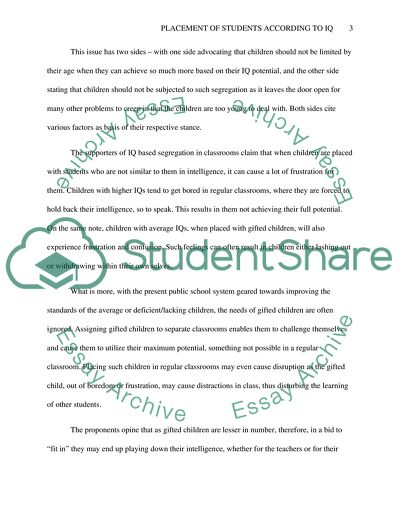Cite this document
(Placement of Students in Classrooms Research Paper - 1, n.d.)
Placement of Students in Classrooms Research Paper - 1. Retrieved from https://studentshare.org/education/1749552-should-students-be-assigned-to-classrooms-according-to-their-iq-level-why-or-why-not
Placement of Students in Classrooms Research Paper - 1. Retrieved from https://studentshare.org/education/1749552-should-students-be-assigned-to-classrooms-according-to-their-iq-level-why-or-why-not
(Placement of Students in Classrooms Research Paper - 1)
Placement of Students in Classrooms Research Paper - 1. https://studentshare.org/education/1749552-should-students-be-assigned-to-classrooms-according-to-their-iq-level-why-or-why-not.
Placement of Students in Classrooms Research Paper - 1. https://studentshare.org/education/1749552-should-students-be-assigned-to-classrooms-according-to-their-iq-level-why-or-why-not.
“Placement of Students in Classrooms Research Paper - 1”, n.d. https://studentshare.org/education/1749552-should-students-be-assigned-to-classrooms-according-to-their-iq-level-why-or-why-not.


